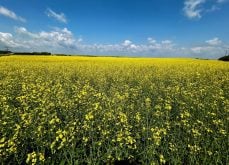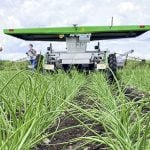NEW YORK, (Reuters) — The National Oilseed Processors Association in the United States has submitted comments to the California Air Resources Board opposing a cap on the use of vegetable oils as feedstock for biofuel production.
On Aug. 12, CARB issued a set of proposed amendments to overhaul California’s Low Carbon Fuel Standard program, which aims to decarbonize the transportation sector by incentivizing the supply of renewable and low-emission fuels.
Among the amendments is a 20 per cent limit on the use of soybean oil and canola oil for production of biomass-based diesel.
Read Also

Heat waves combine sunshine and sinking air
As we continue our look at heat waves, I figured we should first define what they are by looking at the criteria Environment Canada uses to define heat events.
CARB wants to avoid sending a long-term signal for virgin soy and canola oil to serve California’s fuel demand amid concerns of deforestation and other land conversion risks, it said in the text of the amendments.
That has angered agricultural interests, such as NOPA, which claim vegetable oils are currently the most efficient and cost-effective feedstock and say a cap will constrain the supply of renewable diesel, increasing fuel costs.
In a letter to CARB, filed as part of a 15-day public comment period on the amendments, NOPA added that the cap will lead to a surge in imports of foreign feedstocks, such as used cooking oil (UCO) and tallow, some of which may be fraudulently sourced.
A boom in renewable diesel production capacity has turned the United States from a net exporter of UCO to a net importer since 2022 as domestic supply of the waste oils has not grown as fast.
CARB will hold a public hearing on its proposed amendments on Nov. 8, aiming to finalize changes by early next year.















